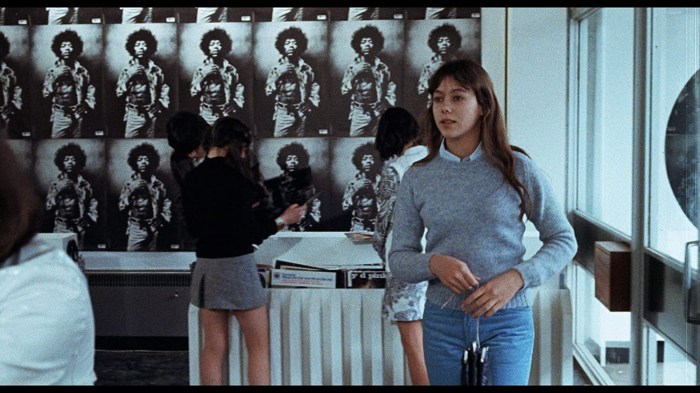Adolescence and the teenage crush answers – Adolescence and the Teenage Crush: A Comprehensive Guide explores the intricate world of teenage crushes, providing insights into their physical, emotional, and social implications. This guide offers a comprehensive analysis of the types of crushes, the role of media and culture, and practical advice for managing these experiences healthily.
Through a multifaceted approach, this guide delves into the perspectives of parents and educators, examining their concerns and opportunities related to teenage crushes. It also explores cross-cultural variations in the expression and management of these experiences, highlighting the influence of cultural norms and values.
Adolescence and the Teenage Crush: Adolescence And The Teenage Crush Answers

Adolescence, a transitional period between childhood and adulthood, is characterized by significant physical, emotional, and social changes. These changes profoundly influence the experience of teenage crushes, shaping the intensity, nature, and impact of these emotional attachments.
Physical Changes
During adolescence, the body undergoes rapid physical growth and development. Hormones surge, leading to changes in body composition, height, and weight. These physical transformations can affect self-esteem and body image, which in turn can influence the way teenagers perceive and interact with potential crushes.
Emotional Changes
Emotional changes are also prominent during adolescence. Teenagers experience increased emotional intensity, mood swings, and a heightened sense of self-consciousness. They may become more sensitive to rejection and criticism, making them more vulnerable to the emotional ups and downs associated with crushes.
Social Changes
Adolescence is a time of increased social interaction and peer influence. Teenagers spend more time with friends and engage in activities that foster social development. Crushes often arise within these social contexts, as teenagers interact with peers they admire and develop romantic feelings.
Types of Teenage Crushes, Adolescence and the teenage crush answers
Teenage crushes can manifest in various forms, each with its unique characteristics and motivations:
- Platonic Crushes:Non-romantic attachments based on admiration, respect, or shared interests.
- Romantic Crushes:Intense emotional attachments involving romantic feelings, desire for reciprocation, and physical attraction.
- Idealized Crushes:Attachments to individuals who are perceived as unattainable or perfect, often based on fantasies or media representations.
The Role of Media and Culture
Media and culture play a significant role in shaping teenage crushes. Movies, TV shows, music, and social media portray and reinforce certain expectations about crushes, influencing how teenagers perceive and express their own emotional attachments.
Media representations can create unrealistic ideals and foster a culture of comparison, leading to self-doubt and anxiety among teenagers. On the other hand, they can also provide positive role models and offer insights into the complexities of romantic relationships.
Managing Teenage Crushes
Teenage crushes can be both exhilarating and challenging. It is essential for teenagers to develop healthy coping mechanisms to manage their emotions and navigate the complexities of crushes:
- Coping with Unrequited Crushes:Acknowledge and accept the reality of unrequited feelings. Engage in self-care activities and seek support from friends or family.
- Dealing with Jealousy:Understand that jealousy is a normal emotion, but it is important to manage it in a healthy way. Communicate openly with your crush, set boundaries, and avoid excessive possessiveness.
- Navigating Romantic Relationships:Establish clear expectations, communicate openly, and respect each other’s feelings. Seek support from trusted adults or friends if needed.
Parental and Educational Perspectives
Parents and educators have important roles to play in supporting teenagers as they navigate the complexities of teenage crushes:
- Parental Perspectives:Parents should provide a safe and supportive environment where teenagers can discuss their crushes openly. They can offer guidance, reassurance, and help their children develop healthy coping mechanisms.
- Educational Perspectives:Educators can incorporate discussions about teenage crushes into health and relationships education. They can provide accurate information, facilitate healthy discussions, and create a supportive environment for students.
Cross-Cultural Considerations
The experience of teenage crushes varies across cultures, influenced by cultural norms, values, and expectations:
- Expression of Crushes:In some cultures, it is considered acceptable to openly express crushes, while in others, it is discouraged or even taboo.
- Marriage and Relationships:Cultural expectations about marriage and relationships can influence how teenagers approach and manage crushes.
- Parental Involvement:The level of parental involvement in teenage relationships varies across cultures, affecting how crushes are perceived and handled.
FAQ Guide
What are the different types of teenage crushes?
Teenage crushes can be platonic, romantic, or idealized. Platonic crushes are based on admiration and friendship, while romantic crushes involve romantic feelings. Idealized crushes are characterized by an intense admiration for someone who is perceived as perfect.
How can media and culture influence teenage crushes?
Media and culture can shape expectations about crushes and influence how teenagers express their feelings. Movies, TV shows, music, and social media often portray unrealistic or idealized versions of crushes, which can lead to unrealistic expectations and disappointment.
What are some healthy ways to manage teenage crushes?
Healthy ways to manage teenage crushes include communicating feelings respectfully, respecting boundaries, and seeking support from trusted adults or peers. It is important to remember that not all crushes are reciprocated, and it is essential to cope with unrequited crushes in a healthy way.


